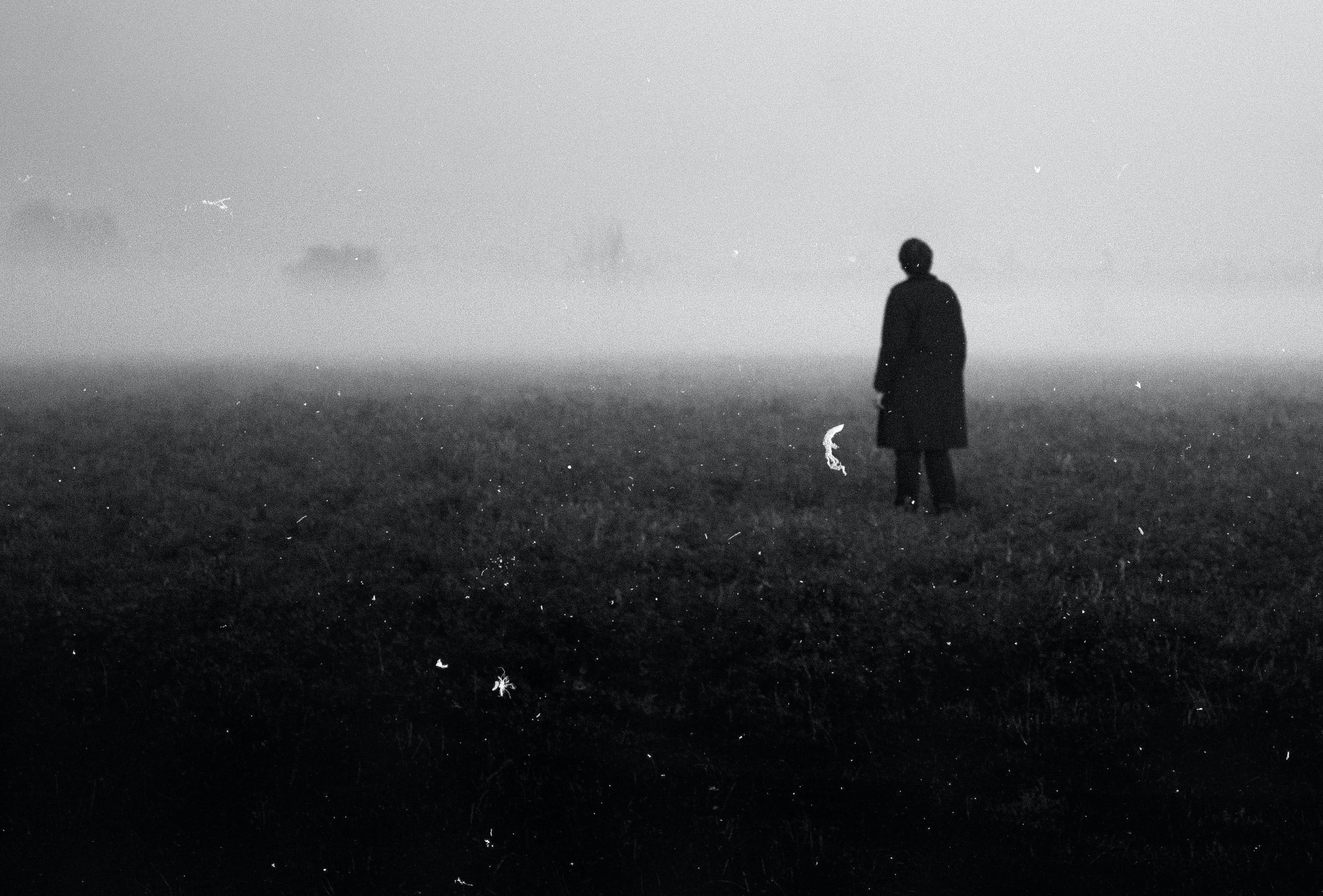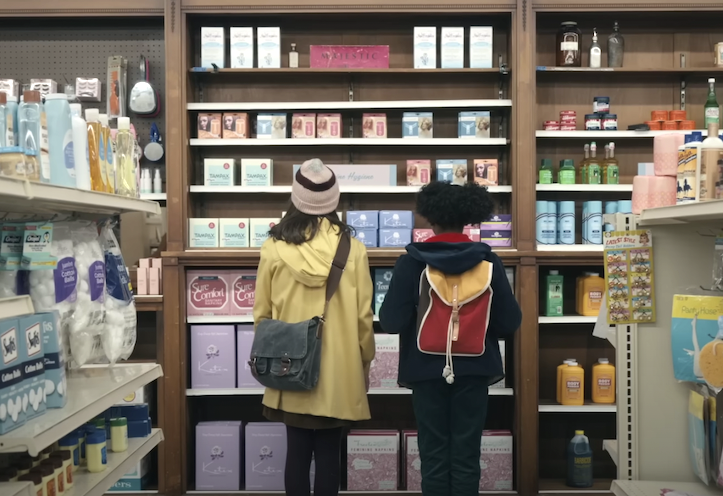Novel Gazing
How One of the Sickest Books Ever Written Cured Me
‘A Clockwork Orange’ promised escape from parental limitations and physical disability

Novel Gazing is Electric Literature’s personal essay series about the way reading shapes our lives. This time, we asked: What’s a book you read in secret?
I got my first paycheck in April of 1999. I was 15 years old. I decided I would buy a book.
My sister drove me to the local mall, and I walked into Waldenbooks and scanned the shelves. This was an auspicious occasion: the first earnings of my life. I believed in signs and wonders and wanted to make my own, so I needed to choose wisely. I wanted to possess a book that would define me. I wanted a manifesto. I wished to become a real person by way of something bold and mean and poetic.
I did not have to search long. The book’s appearance on the shelf was almost audible, as if it were emitting a faint, hellish siren. On the cover were flames and a screaming mouth. The mouth’s teeth were crowded and stained. A Clockwork Orange by Anthony Burgess.
I must have known I would not be allowed to keep it. I must have known. But I still bought the book, such was my desire to own it. I wanted to own this book and I wanted it to own me. The title was sinister yet playful, wholly mysterious. The cover promised great suffering, great truth.
I broke into a sweat as I paid for it. I was ready.
When I was born it was clear I would not amount to much in the physical fitness department. I was born with an orthopedic condition that was never definitively diagnosed but resembled osteogenesis imperfecta. My femurs were bowed and required surgical correction with plates and screws. My bones could break with the slightest pressure, and they did. I spent a lot of my early childhood in body casts and wheelchairs. So I knew early on that I would never be able to join the Marines like my dad, or play sports, or ride a bike, or even take gym class like other children.
My family and my church told me it was God’s plan that I was born different. I was weak in body but could be strong in spirit. I could be a shining example of godliness in a world that is sometimes cruel.
Instead, I chose to read. In elementary and middle school I often spent time separate from my peers because of medical issues, and I filled that time with books. Throughout my life, in sickness and in health, holing up somewhere private and reading a book has been my human equivalent of a dog dragging itself under the porch at its final hour, a self-comforting instinct.
My family and my church told me it was God’s plan that I was born different. I was weak in body but could be strong in spirit.
High school was better, but by then I had developed scoliosis. For two years I wore a Milwaukee back brace, which was humiliating in its own special way that I tried to ignore. I attempted, and failed, to ignore a lot of things. My parents were zealously protective of me. Their concern was partly due to my medical history, but much of it was a result of the conservative Christian values they followed. Television, music, and clothing choices were strictly monitored. No “weirdo” friends were allowed, though the definition of “weirdo” remained elastic and nebulous. My father was a history teacher at the rural public high school I attended, and he was renown for his disciplinarian ways. The student body totaled less than 400 at the time. I felt watched and I watched. I was a paranoid alien.
The first book I remember reading as a child is a floppy-cover Winnie the Pooh book, but the book that permeated my subconscious before that was the Bible. The Bible is probably to blame for my literary inclinations, what with phrases like,“For now we see through a glass, darkly,” and, “We shall not all sleep, but we shall all be changed, In a moment, in the twinkling of an eye…” But as a teenager, around the time I started my first job, I began questioning my religious upbringing. God’s marvelous plans seemed more and more suspect to me. I had learned zero lessons from my physical crucible. I was no more enlightened than anyone else.
Above all, I wanted to be normal, meaning cool, or eligible for coolness. But this was not to be. I had an acute awareness of my situation. I knew that my peers regarded me as somewhat pathetic. Most of my classmates had known me since kindergarten. Reinventing myself as a forceful character was impossible when everyone saw me as the runty kid bearing up valiantly under her special burden. No matter how smart or how snarky I became, to my high school peers I would always be Tiny Tim with his little crutch and Positive Mental Attitude. The thought horrified me.
No matter how smart or how snarky I became, to my high school peers I would always be Tiny Tim with his little crutch and Positive Mental Attitude.
So around this age of 15, I decided that if I could not be normal I would be grossly, misguidedly abnormal. And if I could not be abnormal in outward expression, such as in my clothing choices or friendships or speech, I would be privately, spiritually abnormal. Like my hidden bones, I would be invisibly vicious.
Books, I knew, would deliver me to this new state of being. They taught me about the world when the world was unavailable to me. I wanted to read something ugly, detestable. My own revulsion beckoned. I wanted to take a bath in the nastiness of humankind. I couldn’t help myself. It is hard to help the pull toward depravity once you’ve been immersed in the Bible. All that blood and glory. All that revenge and love and death.
When my sister and I arrived home from the bookstore my parents called a greeting to us from the living room. As I walked past, one of my parents saw that I held a shopping bag. They asked me what I bought.
I took the book out of the bag. My mother or father, I can’t remember which, lifted it from my hands.
I don’t know if my dad ever watched Stanley Kubrick’s A Clockwork Orange, but he apparently knew enough about it to know it contained rape scenes and murder. He and my mother were aghast. They were appalled by the book’s subject matter, of course, but more appalled that I had chosen it. That their daughter was interested in a book like this.
And this, dear reader, told me I had chosen correctly.
I was taken back to Waldenbooks, where I returned the novel. I did not get the chance to open it.
That experience confirmed some things. Firstly, that adults were easily alarmed. Secondly, that the written word was powerful.
That experience confirmed some things. Firstly, that adults were easily alarmed. Secondly, that the written word was powerful. I had always suspected as much, but to see up close what a guttural reaction a book — a book! an inert, inanimate object! — could get was exciting. Art was dangerous. It had the power to permanently taint you, to muddy up the mind. As I said, I was ready.
Thirdly, I learned that my strategy must be one of patience. I loved my parents and did not want to hurt them, a minor roadblock to my spiritual rebellion. I would bide my time. My lurking curiosity would be waiting.
I have been lucky. Except for the brittle teeth that followed me into adulthood, most of my physical ailments are over with for now. I can walk without aid or pain, and other than being short I think I look fairly regular. My strange skeleton has offered me a multi-year reprieve from pain and grief, though I know it can’t last.
I still hanker after transgressive literature. I still search out books that I hope will explain things to me: illness, death, suffering, unkindness. I like stories that are unafraid of these mysteries, and are unafraid of being mysterious.
But for all my teenage aberrant aspirations, I have led a boring life. I stayed in the local area. I got married. I used to be a librarian, for God’s sake. I was boring. I am boring. My outward expression remains benign. I can’t help but be a little disappointed by this fact. I was really counting on my malignant spirit to take me places. People are led to believe, even those who live with illness, that being born with medical issues makes one special or superlative in some way. It does not. Everyone is equally entitled to be an unremarkable human.
Everyone is equally entitled to be an unremarkable human.
Still, I have never shaken the feeling of otherness. No matter where I go, no matter what environment into which I assimilate myself, I remain a paranoid alien. Reading and writing continues to be an escape, a place where I may transcend this infinitely banal and infinitely wonderful life. And I continue to hoard words of all kinds, including my own. When I received my first acceptance for publication, I told no one for a few years. I eventually mentioned it to my husband. He reacted with pleasure and pride, and the moment was lovely.
After a few days, though, I was sorry I told him. That secret had been lending me power.
Two years passed. I was a senior in high school. At a used book sale I happened to find a paperback copy of A Clockwork Orange.. The pages were coarse and smelled of rancid peanut butter.
I bought it for $2, no receipt. I vowed to be smarter this time. I kept it in my locker at school during the week. When I brought it home over weekends, I stuffed it under my mattress between furtive readings.
The book did not disappoint. Alex, a kid who seemed very adult to me — it was hard to believe that any fictional teenager was ever my age — brutalizes people with his friends and is then incarcerated. Once the predator, Alex becomes the victim of political machinations, including “reconditioning,” or government-sanctioned torture. After many twists and turns, this conditioning is eventually reversed and, in return for the favor, he publicly endorses the government administration.
In this edition of the book, Alex, both the manipulator and manipulated, remains a bastard. He was an unabashed bastard all along. But so was everyone else.
When I finished the novel, I was mystified: why had my parents considered this book so dangerous? I understood it had rape and violence and murder in it. But it was fiction. And even as some wicked layer of me championed Alex’s perverse appreciation of art and independence, I knew the crimes he committed were heinous acts, just as I knew the torture the government inflicted upon him was a heinous act. I had sympathy for his victims. I judged him even as I rooted for him. The book talked to me and I talked back at it. I gloried in some parts and recoiled from other parts. I questioned my own reactions. In other words, I experienced A Book.
When we read we consult ourselves: What is the meaning of anything? Do we think what we think we think? Do we like what we think? Should we change what we think?
Years later I would reread the novel with the missing final chapter. The copy of A Clockwork Orange that I’d picked up at the library sale, it turned out, was the U.S. edition, meaning the final chapter of the novel featuring Alex’s reformation and social assimilation had been excised. I also read Burgess’s introduction, “A Clockwork Orange Resucked,” where he vents his spleen. He hated his own book and the popular attention it received. He loathed Kubrick’s adaptation. In a separate interview he confessed that he wrote the novel in three weeks to make a deadline. All of this behind-the-curtain pettiness makes the book seem even less dangerous now.
But I’d like to think that my first reading of A Clockwork Orange answered my original question of what makes a book dangerous. When we read we consult ourselves: What is the meaning of anything? Do we think what we think we think? Do we like what we think? Should we change what we think? The reader’s brain is led through a guided dream. I think of the Bible, perhaps the most dangerous book of all. How many people have challenged themselves against that text, lost themselves in that dream? Any other book before or since it seems laughably safe in comparison.
In the end, I donated my $2 copy of A Clockwork Orange to a library book sale a few months after I finished it. I probably could have kept it without a fuss. To my slow-motion surprise, I was discovering that my parents were human. Over the preceding two years they had become more flexible, less restrictive. The change was gradual. But they tried, and I could see them trying.
I gave the book away, anyway. I had possessed the book, and it had possessed me. I figured that my curiosity, a burning sickness that has never left me, had been cured.
It was cured, all right.









